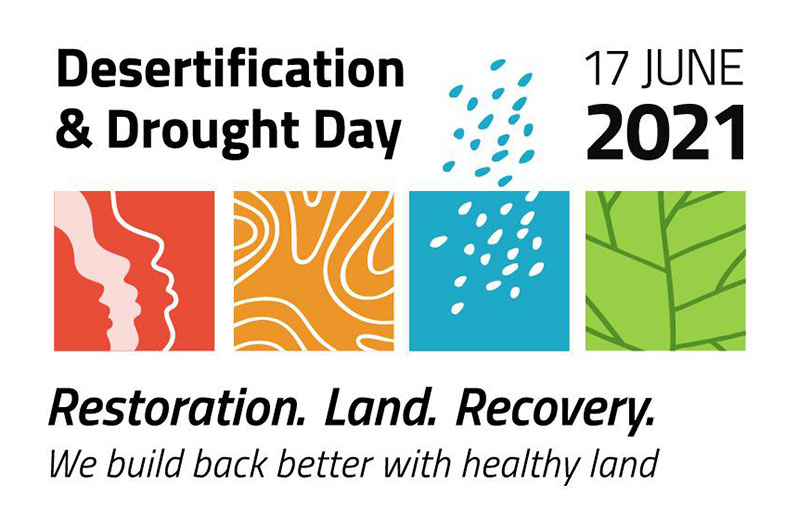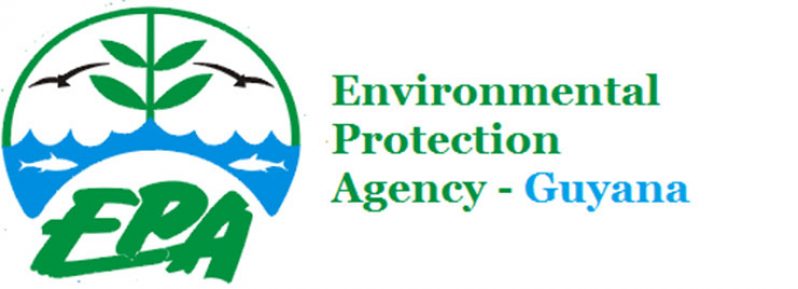DESERTIFICATION and Drought Day – known as the World Day to Combat Desertification and Drought before 2020 – is observed every year to promote public awareness of international efforts to combat desertification. The day is a unique moment to remind everyone that reversing land degradation is achievable through problem-solving, strong community involvement and cooperation at all levels.
In 2021, the goal of Desertification and Drought Day is to demonstrate that investing in healthy land as part of a green recovery is a smart economic decision – not just in terms of creating jobs and rebuilding livelihoods, but also in terms of insulating economies against future crises caused by climate change and nature loss, and in accelerating progress on all 17 Sustainable Development Goals as we recover from COVID-19.
 The 2021 Desertification and Drought Day, which was held on 17 June, will focus on turning degraded land into healthy land. Restoring degraded land brings economic resilience, creates jobs, raises incomes and increases food security. It helps biodiversity to recover. It locks away the atmospheric carbon warming the Earth,thereby slowing climate change. It can also lessen the impacts of climate change and underpin a green recovery from the COVID-19 pandemic.
The 2021 Desertification and Drought Day, which was held on 17 June, will focus on turning degraded land into healthy land. Restoring degraded land brings economic resilience, creates jobs, raises incomes and increases food security. It helps biodiversity to recover. It locks away the atmospheric carbon warming the Earth,thereby slowing climate change. It can also lessen the impacts of climate change and underpin a green recovery from the COVID-19 pandemic.
 The United Nations Convention to Combat Desertification (UNCCD) will work with the Ministry of Environment (MINAE) of Costa Rica, the host of the global observance, to encourage households, communities, the private sector and countries to have a better relationship with nature as we recover from COVID-19.
The United Nations Convention to Combat Desertification (UNCCD) will work with the Ministry of Environment (MINAE) of Costa Rica, the host of the global observance, to encourage households, communities, the private sector and countries to have a better relationship with nature as we recover from COVID-19.
Nearly three-quarters of the Earth’s ice-free land has been altered by humans to meet an ever-growing demand for food, raw materials, highways and homes. Fixing damaged ecosystems militates against climate change and bolsters nature’s defences against disasters and extreme weather events such as wildfires, droughts, floods, and sand and dust storms. Restoring natural landscapes reduces close contact between wildlife and human settlements, creating a natural buffer against zoonotic diseases.
Avoiding, slowing and reversing the loss of productive land and natural ecosystems now is both urgent and important for a swift recovery from the pandemic and for guaranteeing the long-term survival of people and the planet.
“Land restoration can contribute greatly to post-COVID-19 economic recovery. Investing in land restoration creates jobs and generates economic benefits, and could provide livelihoods at a time when hundreds of millions of jobs are being lost.”
— Ibrahim Thiaw, UNCCD Executive Secretary
For more information on Guyana’s efforts to combat desertification, please visit – https://glsc.gov.gy/
You can share your ideas and questions by sending letters to: “Our Earth, Our Environment”, C/O ECEA Programme, Environmental Protection Agency, Ganges Street, Sophia, GEORGETOWN, or email us at: eit.epaguyana@gmail.com. Follow us on Facebook and Instagram and subscribe to our YouTube channel.




.png)









